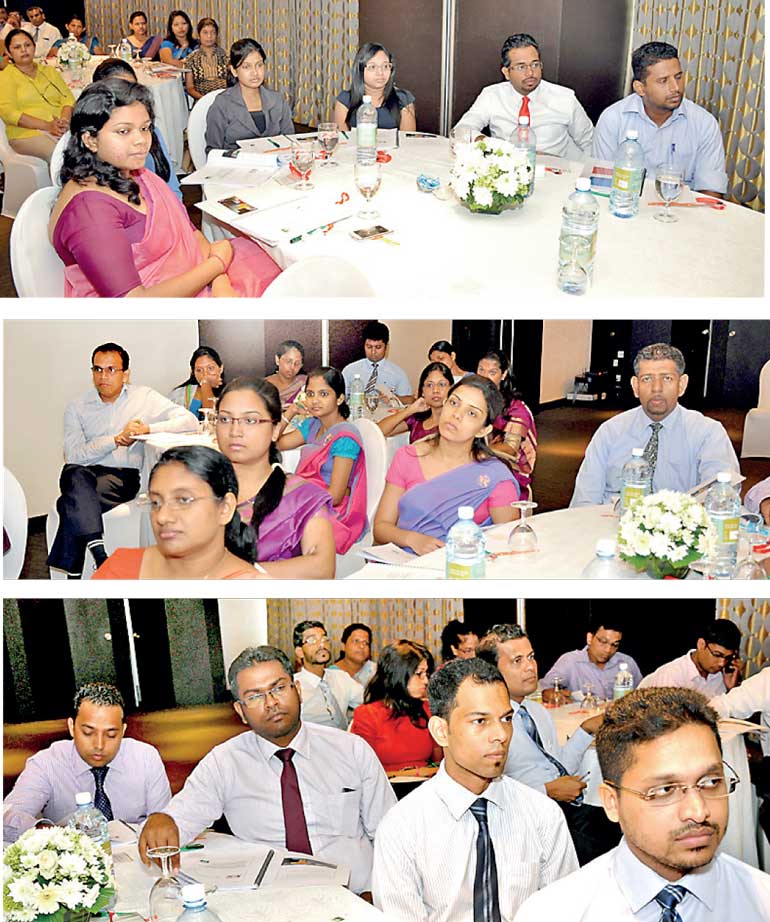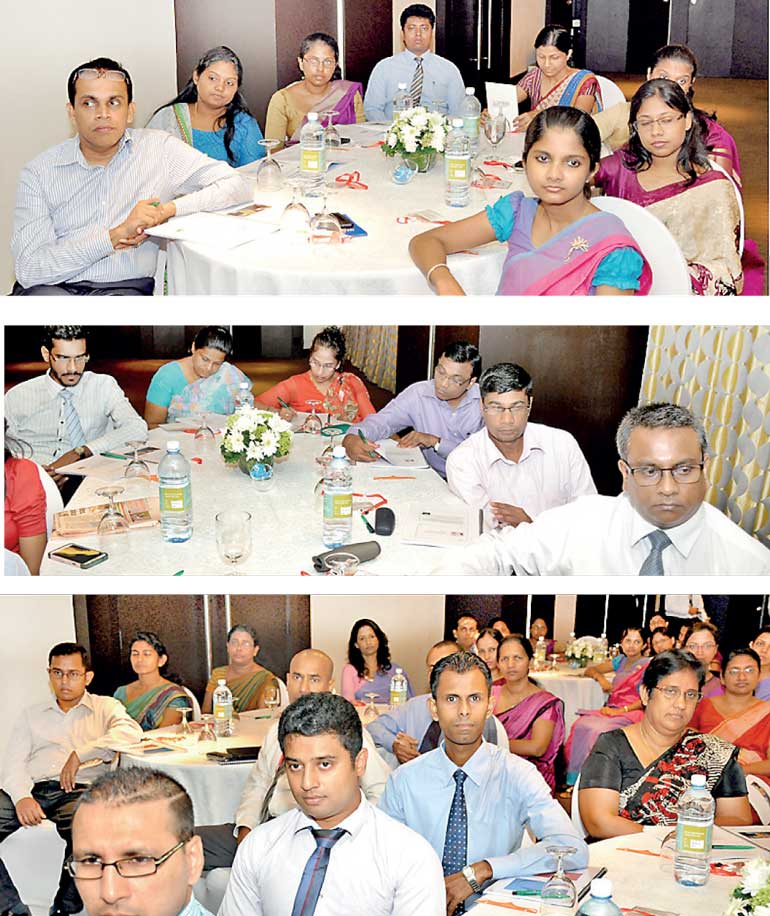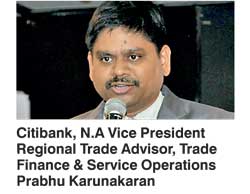Sunday Feb 22, 2026
Sunday Feb 22, 2026
Wednesday, 29 July 2015 00:36 - - {{hitsCtrl.values.hits}}



By Shehana Dain
Citi Sri Lanka recently held a workshop for its clients to give a better understanding on UCP 600 and ISBP’s latest developments. The bank had specifically sent invites to 60 banking professionals from along its clientele. 
This was the second such annual workshop by Citi Sri Lanka. The workshop was broken down to two parts as the first part consisted of breaking down the more important articles of UCP 600 and the second part of the session comprised of ISBP 745 comparing it with older versions of banking practices and detailing what’s new and conflicting in the newly-introduced ISBP 745.
The training session was conducted by Citibank, N.A Vice President Regional Trade Advisor, Trade Finance and Service Operations Prabhu Karunakaran, who delved deep into the articles of UCP 600 “Some of the articles in UCP 600 was time and again a challenge in interpretation making banks interpreted them the way they wanted to, we need to know the correct way of interpretation and expectation of UCP so we all can apply it in a standard way,” Prabhu stressed. International trade is one of the main areas of business for most commercial banks in Sri Lanka. Efficiency in handling and processing proper documentation is vital in this business. Documentation for international trade should always follow the rules and regulations in UCP 600 with 100% accuracy. Hence understanding in depth the technicalities of UCP was covered by the workshop.
Moreover International Standard Banking Practice – ISBP 745 is the most up to date, comprehensive guide to handling and examining trade documents under documentary credits, which is another important aspect in the banking and finance arena that was taken up at the training session. The entire session was structured in a manner to facilitate active participation an interaction among the participants. The presentation contained important contents explained first and followed by Q&A sessions and case studies for applying the context for practical scenarios.
Pix by Lasantha Kumara